第252章
[The beginning of the year 1861 saw my father with the third chapter of 'The Variation of Animals and Plants' still on his hands. It had been begun in the previous August, and was not finished until March 1861. He was, however, for part of this time (I believe during December 1860 and January 1861) engaged in a new edition (2000 copies) of the 'Origin,' which was largely corrected and added to, and was published in April 1861.
With regard to this, the third edition, he wrote to Mr. Murray in December 1860:--"I shall be glad to hear when you have decided how many copies you will print off--the more the better for me in all ways, as far as compatible with safety; for I hope never again to make so many corrections, or rather additions, which I have made in hopes of making my many rather stupid reviewers at least understand what is meant. I hope and think I shall improve the book considerably."An interesting feature in the new edition was the "Historical Sketch of the Recent Progress of Opinion on the Origin of Species" (The Historical Sketch had already appeared in the first German edition (1860) and the American edition. Bronn states in the German edition (footnote, page 1) that it was his critique in the 'N. Jahrbuch fur Mineralogie' that suggested the idea of such a sketch to my father.) which now appeared for the first time, and was continued in the later editions of the work. It bears a strong impress of the author's personal character in the obvious wish to do full justice to all his predecessors,--though even in this respect it has not escaped some adverse criticism.
Towards the end of the present year (1861), the final arrangements for the first French edition of the 'Origin' were completed, and in September a copy of the third English edition was despatched to Mdlle. Clemence Royer, who undertook the work of translation. The book was now spreading on the Continent, a Dutch edition had appeared, and, as we have seen, a German translation had been published in 1860. In a letter to Mr. Murray (September 10, 1861), he wrote, "My book seems exciting much attention in Germany, judging from the number of discussions sent me." The silence had been broken, and in a few years the voice of German science was to become one of the strongest of the advocates of evolution.
During all the early part of the year (1861) he was working at the mass of details which are marshalled in order in the early chapter of 'Animals and Plants.' Thus in his Diary occur the laconic entries, "May 16, Finished Fowls (eight weeks); May 31, Ducks."On July 1, he started, with his family, for Torquay, where he remained until August 27--a holiday which he characteristically enters in his diary as "eight weeks and a day." The house he occupied was in Hesketh Crescent, a pleasantly placed row of houses close above the sea, somewhat removed from what was then the main body of the town, and not far from the beautiful cliffed coast-line in the neighbourhood of Anstey's Cove.
During the Torquay holiday, and for the remainder of the year, he worked at the fertilisation of orchids. This part of the year 1861 is not dealt with in the present chapter, because (as explained in the preface) the record of his life, as told in his letters, seems to become clearer when the whole of his botanical work is placed together and treated separately. The present series of chapters will, therefore, include only the progress of his works in the direction of a general amplification of the 'Origin of Species'--e.g., the publication of 'Animals and Plants,' 'Descent of Man,' etc.]
CHARLES DARWIN TO J.D. HOOKER.
Down, January 15 [1861].
My dear Hooker, The sight of your handwriting always rejoices the very cockles of my heart...
I most fully agree to what you say about Huxley's Article ('Natural History Review,' 1861, page 67, "On the Zoological Relations of Man with the Lower Animals." This memoir had its origin in a discussion at the previous meeting of the British Association, when Professor Huxley felt himself "compelled to give a diametrical contradiction to certain assertions respecting the differences which obtain between the brains of the higher apes and of man, which fell from Professor Owen." But in order that his criticisms might refer to deliberately recorded words, he bases them on Professor Owen's paper, "On the Characters, etc., of the Class Mammalia,"read before the Linnean Society in February and April, 1857, in which he proposed to place man not only in a distinct order, but in "a distinct sub-class of the Mammalia"--the Archencephala.), and the power of writing...The whole review seems to me excellent. How capitally Oliver has done the resume of botanical books. Good Heavens, how he must have read!...
I quite agree that Phillips ('Life on the Earth' (1860), by Prof. Phillips, containing the substance of the Rede Lecture (May 1860).) is unreadably dull. You need not attempt Bree. (The following sentence (page 16) from 'Species not Transmutable,' by Dr. Bree, illustrates the degree in which he understood the 'Origin of Species': "The only real difference between Mr. Darwin and his two predecessors" [Lamarck and the 'Vestiges'] "is this:--that while the latter have each given a mode by which they conceive the great changes they believe in have been brought about, Mr. Darwin does no such thing." After this we need not be surprised at a passage in the preface: "No one has derived greater pleasure than I have in past days from the study of Mr. Darwin's other works, and no one has felt a greater degree of regret that he should have imperilled his fame by the publication of his treatise upon the 'Origin of Species.'")...